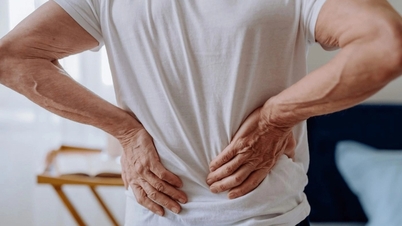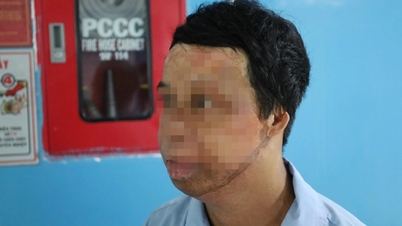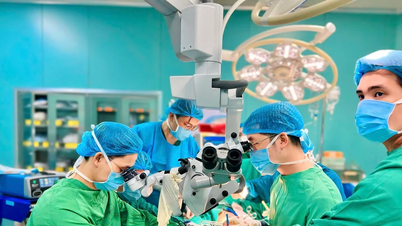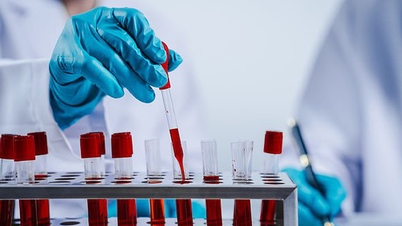However, sometimes cramps can have more serious causes, often related to problems with the nervous system, including the brain and spinal cord.
In particular, chronic kidney disease (CKD) can also cause cramps, due to changes in the body's fluid and electrolyte balance, according to the health news site Health Digest.
When kidneys fail, blood levels of potassium and phosphorus can rise, causing electrolyte imbalances—a factor that leads to muscle cramps and spasms.

Chronic kidney disease can also cause cramps.
Illustration: AI
Effects of CKD on muscles and nerves
As kidney disease progresses, the buildup of metabolic waste in the body can directly affect the muscles and nervous system. The result is symptoms such as muscle twitching, weakness, muscle pain and cramps.
In addition, the patient may also experience tingling, loss of sensation in the limbs, restless leg syndrome, even confusion, seizures and coma.
Signs of weak kidneys need special attention
According to Dr. Joseph Vassalotti, Medical Director of the National Kidney Foundation, most patients do not know they have kidney disease until the late stages. Only about 10% of patients are aware of their condition.
Some typical symptoms of CKD include:
- Tired, weak, difficult to sleep.
- Dry, itchy skin.
- Frequent urination, especially at night.
- Blood in urine.
- Swelling around the eyes, feet and ankles.
- Muscle symptoms such as cramps or spasms.
High-risk subjects need early screening
People with a family history of kidney disease, or living with high blood pressure, diabetes, obesity, or heart disease should pay special attention to the above signs. Early detection will support more effective treatment, help control the disease and prevent complications.
Control and prevention measures
To slow the progression of CKD, patients can apply the following measures:
- Reduce sodium intake and eat heart-healthy foods.
- Restrict protein, phosphorus, and potassium.
- Stop smoking, limit alcohol.
- Maintain a healthy weight and exercise regularly.
- Avoid taking anti-inflammatory pain relievers as they can damage the kidneys.
Ways to relieve cramps for people with kidney disease
For muscle cramps or spasms, patients can apply:
- Stretch gently.
- Massage, warm bath.
- Drink enough water.
- Wear comfortable shoes, according to Health Digest.
Although chronic kidney disease is a complex and insidious condition, people can live long and healthy lives if they recognize the signs early, including muscle manifestations. Lifestyle changes and proper medical care are key to effective disease control and quality of life.
Source: https://thanhnien.vn/chuot-rut-khong-duoc-xem-nhe-vi-co-the-la-dau-hieu-cua-suy-than-185250725200916427.htm





![[Photo] Party Committees of Central Party agencies summarize the implementation of Resolution No. 18-NQ/TW and the direction of the Party Congress](https://vphoto.vietnam.vn/thumb/1200x675/vietnam/resource/IMAGE/2025/10/27/1761545645968_ndo_br_1-jpg.webp)
![[Photo] National Assembly Chairman Tran Thanh Man receives Chairman of the House of Representatives of Uzbekistan Nuriddin Ismoilov](https://vphoto.vietnam.vn/thumb/1200x675/vietnam/resource/IMAGE/2025/10/27/1761542647910_bnd-2610-jpg.webp)


































































































Comment (0)